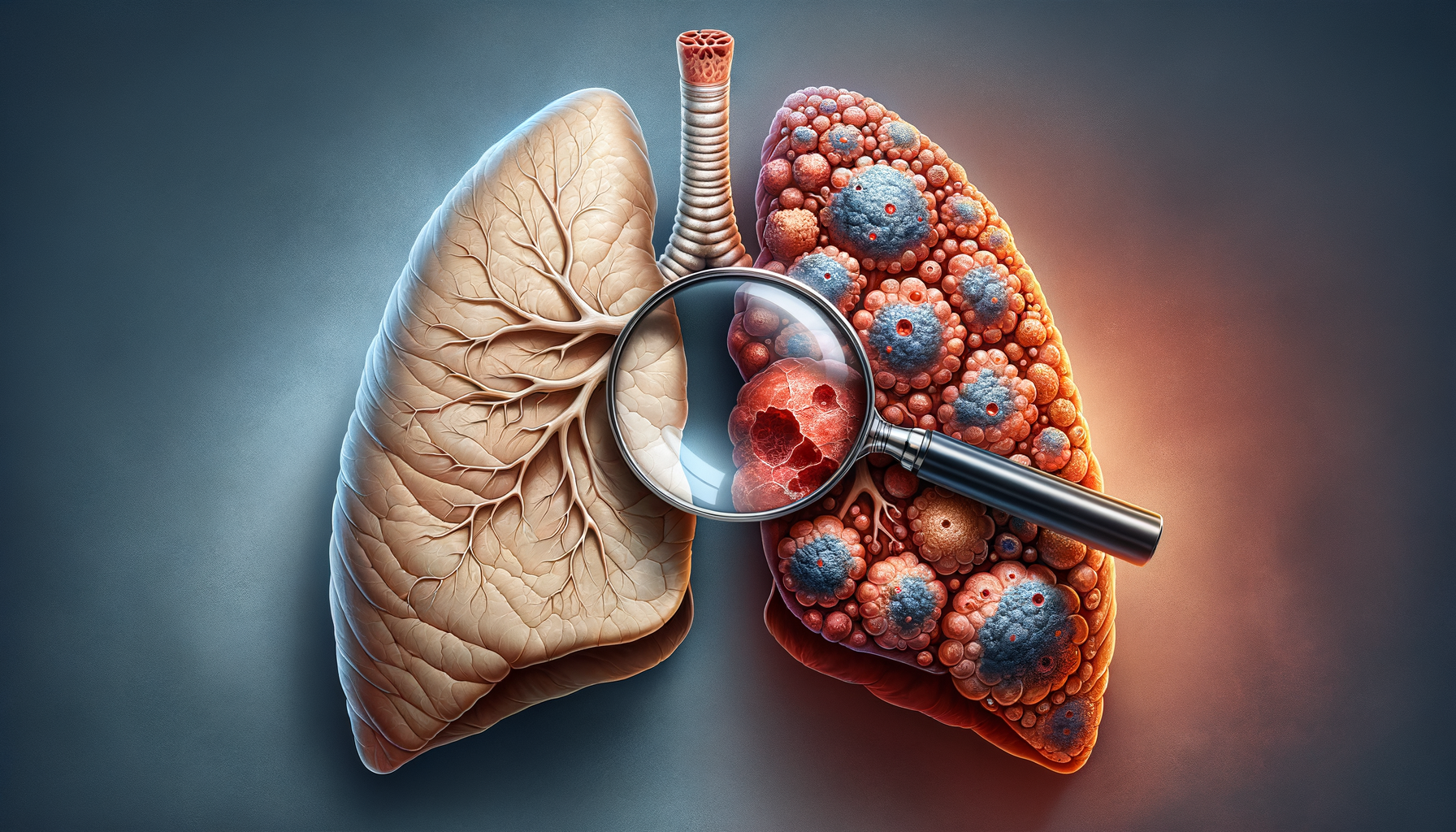
Key Signs of Lung Cancer Worth Attention
Understanding Lung Cancer Symptoms
Lung cancer, a serious health condition, often develops subtly, with symptoms that may easily be mistaken for less severe illnesses. Understanding these symptoms is crucial for early detection and effective treatment. Common symptoms include persistent coughing, which may worsen over time, and changes in a chronic cough. This is often accompanied by coughing up blood, a symptom that should prompt immediate medical attention.
Shortness of breath is another symptom that can develop as the cancer progresses, often mistaken for aging or lack of fitness. Chest pain, particularly when breathing deeply, coughing, or laughing, can also be a sign of lung cancer. Other symptoms include unexplained weight loss and fatigue, which are common in many types of cancer but are significant warning signs when combined with respiratory symptoms.
It’s important to note that these symptoms can also be associated with other health conditions. Therefore, consulting a healthcare professional for a proper diagnosis is essential if these symptoms persist or worsen.
Early Warning Signs of Lung Cancer
Identifying early warning signs of lung cancer can significantly affect the prognosis and treatment outcomes. One of the earliest signs is a persistent cough that doesn’t resolve over time. This cough may be dry or produce mucus and is often overlooked as a symptom of a common cold or respiratory infection.
Another early indicator is changes in voice, such as hoarseness, which occurs when the cancer affects the nerves controlling the larynx. Additionally, recurrent respiratory infections like bronchitis or pneumonia can signal lung cancer, as tumors may obstruct airways, making them more susceptible to infections.
Recognizing these early signs and seeking medical evaluation can lead to earlier diagnosis and a broader range of treatment options, potentially improving survival rates.
Methods of Lung Cancer Detection
Detecting lung cancer involves a combination of tests and screenings that aim to identify the presence of cancerous cells in the lungs. The most common initial test is a chest X-ray, which can reveal masses or nodules in the lungs. However, more detailed imaging, such as a CT scan, is often required to provide a clearer picture of the lung’s condition.
In addition to imaging tests, a sputum cytology test may be conducted if a person is coughing up mucus. This test examines the mucus for cancer cells. A biopsy, where a small sample of lung tissue is removed and examined under a microscope, is another definitive method for diagnosing lung cancer.
Advancements in medical technology have introduced low-dose CT scans as a screening tool for high-risk individuals, such as long-term smokers. This method has proven effective in detecting lung cancer at an earlier, more treatable stage.
Impact of Early Detection on Treatment and Prognosis
Early detection of lung cancer significantly influences the treatment options available and the overall prognosis for the patient. When lung cancer is identified at an early stage, surgical options to remove the tumor are more viable, and the chances of complete recovery are higher. Early-stage lung cancer might also be treated effectively with radiation therapy or targeted drug therapy, which can be less invasive than treatments required for more advanced stages.
The survival rate for lung cancer increases dramatically when the cancer is detected early. For instance, the five-year survival rate for localized lung cancer, where the cancer has not spread beyond the lungs, is significantly higher compared to cases where the cancer has metastasized to other parts of the body.
Therefore, awareness of the symptoms and early warning signs, coupled with regular screenings for high-risk individuals, can lead to earlier detection and more effective treatment, ultimately improving survival rates.
Conclusion: Taking Charge of Your Health
Understanding the symptoms and early warning signs of lung cancer is vital for anyone, particularly those at higher risk due to lifestyle factors or genetic predisposition. By being informed and vigilant, individuals can take proactive steps in seeking medical advice and undergoing necessary screenings. Early detection is key to improving treatment outcomes and survival rates.
Regular check-ups and being attentive to changes in your health can make a significant difference. If you or someone you know is experiencing symptoms associated with lung cancer, consult a healthcare professional promptly. Taking charge of your health can pave the way for early intervention and better management of lung cancer.


